Louth: there’s Drogheda at one end, Dundalk’s at the other end and Togher is half way between the two. Not far away from there is a village called Clogherhead, where I’m from. It’s on the east coast. One of the few things we’re famous for is that the Celtic Tiger actually never got here.
There are loads of beaches around this way and there are riches, but no one gets to see them. It’s a hidden gem. The view of the Cooley Mountains on one side of the bay is really nice.
I’ve lived here all my life and I’ve farmed all my life. I’m a dairy farmer. To be honest, when you’re farming, you spend a lot of your day not seeing anyone. You do get isolated and you get insulated in that. You become part of a routine, which isn’t good. I know lads that haven’t seen anyone for 12 months and it had got to the stage where I was nearly getting like that myself.
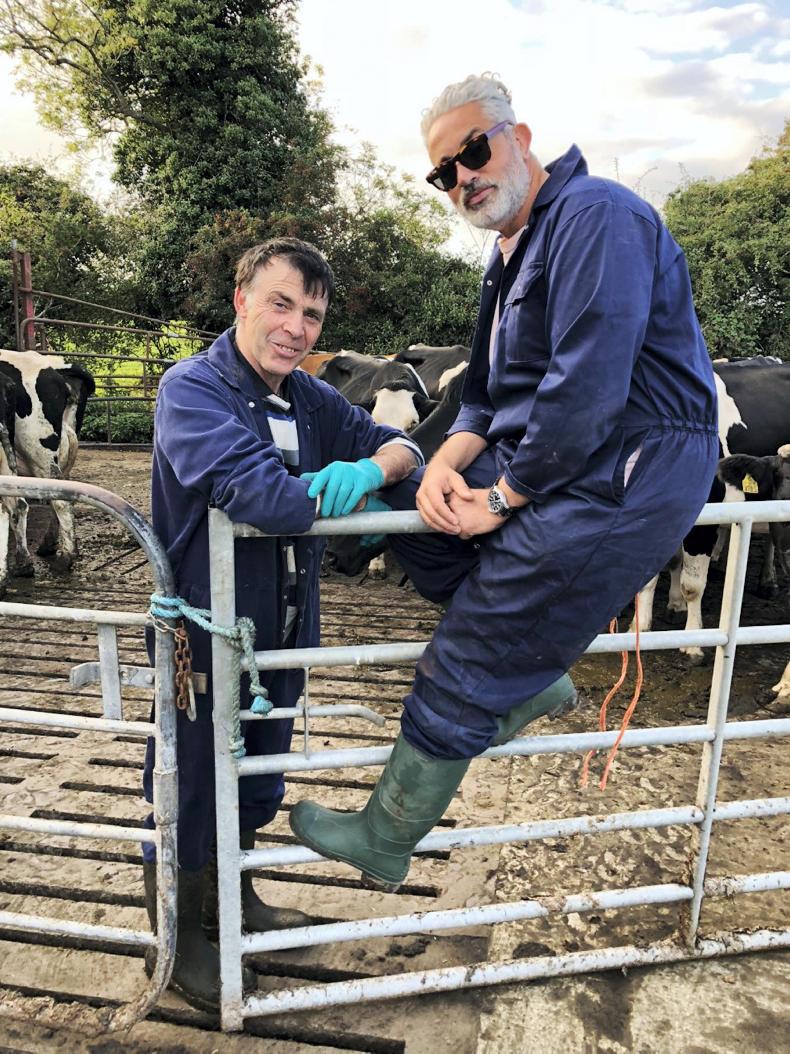
Jimmy Byrne on his farm with Baz Ashmawy.
I’ve always been interested in going to plays. It made me get out, because most nights I’d finish the yard work, come in, get something to eat, sit in front of the telly for two or three hours, flick a couple of channels and go to bed. The whole thing, it was like Groundhog Day. I was doing the same thing, day in, day out.
I went to see a play, The Quiet Land by Malachy McKenna, I really related to it. There are two characters in it, two elderly farmers, one of them is attacked. There’s a lot about rural crime in there. The twist at the end is quite emotional, it still makes me sit up and think, wow.
The night I went to the play, I made contact with the director. That’s how much it affected me, it was a really brilliant play. I asked the director who wrote it and she gave me Malachy’s name and mobile number.
He gave me the contact details of the crowd in London. I rang them and they explained how much it was going to cost. They sent me a script. I brought it to a local drama group and they showed no interest, it was a non-runner. I had this script and I didn’t know how to put on a play.
Then I heard Baz Ashmawy on the local radio station. He was promoting Wingman, the show I was on. I sent in a text to the radio saying, ‘I tick all the boxes’. The show’s premise is basically Baz helping you achieve something you’ve always wanted to do. They’re looking for participants for the second series now.
I’d forgotten all about the text and two or three weeks later a producer rang me and said, ‘Send in a video about what you want to do’. I said, ‘I can’t do that’, I had an old Nokia phone at the time [not a smartphone].
I was seeing my son that weekend, I’m separated. My son made the video for me. All I did was talk to the camera. I explained about the play. They loved the idea and Baz had acted before. For someone in RTÉ to put on a play, it’s like falling off a log to them. But if I asked him to come in and plough a field, it’d be a different story. I actually did get him to top a field, it didn’t go that well!
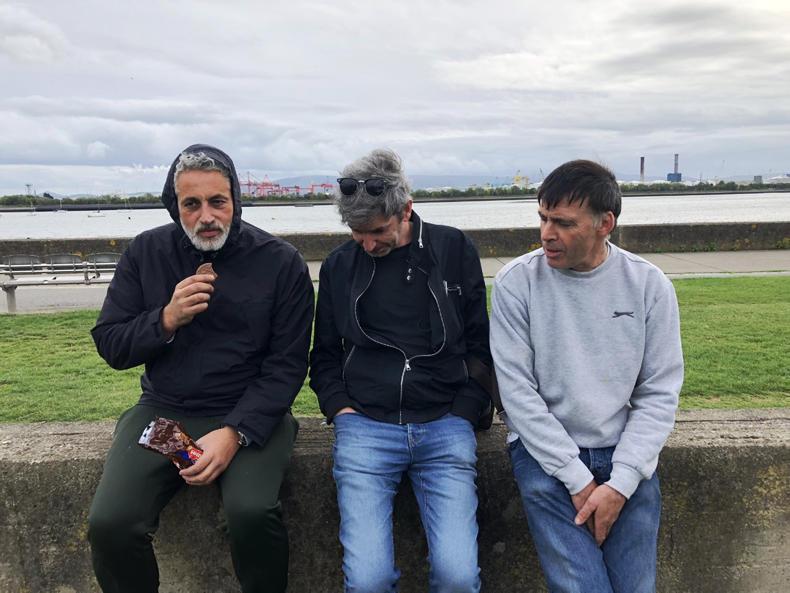
Baz Ashmawy, Peter Reid and Jimmy Byrne.
Baz brought in Peter Reid, the director and a proper team of professionals. It’s alright having this idea and bringing it to people, but when they say, ‘Come on, let’s go for it’, I’m used to rejection. You get into the mindset of, you know what, maybe they’re right, maybe it’s something I don’t need to do, and that’s with everything. Maybe it’s the Irish-ness in us.
The whole way through it I was thinking, ‘What have I done?’ Then there’s a team there and you don’t want to let anyone down. But Baz and Peter never stopped encouraging me.
It was like actor bootcamp. We had nine days to put on that play, nine days to learn 60 pages. I milked in the morning, milked in the evening, fed the calves and that was it. Then from about 10 o’clock in the morning to about five in the evening, I was literally at actor bootcamp. After milking in the evening, I’d run lines until 12 and start again at 5.30 in the morning.
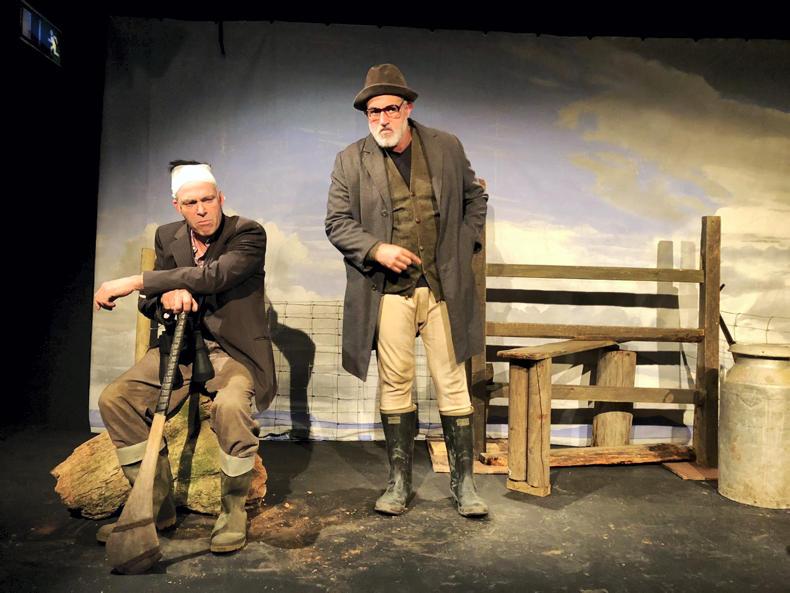
Jimmy Byrne and Baz Ashmawy on stage.
It was hard work, but it was fun. When you’re on your own, you miss that. When you’re in an office you have to do work, but you have the craic too.
The play was on in the community hall and in aid of the local RNLI. We sold out, 200 people came. I haven’t heard of anyone who was at the play that wasn’t touched by the ending. I wanted to get across how rural crime affects vulnerable people for the rest of their life.
The great thing for me, doing this, it meant I wasn’t afraid to leave my comfort zone of literally, work, watch the television. It gave me an outside interest, which everyone needs; the total opposite to farming.
Now I have to admit, I’m not a great jiver, but it’s brilliant craic
Last January I was in a pantomime with the Drogheda Pantomime Society. Fiona O’Connell was the director. I had to go and audition for the part and I also helped back stage. I wouldn’t have seen it only for Facebook on the new phone.
It was a brilliant experience. It’s all about meeting people. If I was in Drogheda now shopping, I could meet someone from the pantomime society for a chat. I also learned how to jive since. Now I have to admit, I’m not a great jiver, but it’s brilliant craic.
It’s hard to get out there meeting people, but when you do it’s great. I’m not saying putting on a play is for everyone, but set dancing say, what’s the worst that can happen? They say, ‘We’re going to give you a few lessons on how to dance’.
I’m a lot more confident now and I’ve met a lot more people.
Application forms for the second series of Wingman can be found on www.rte.ie/wingman.
Read more
My Country Living: a couple that is ‘one in a melon’
My Country Living: ‘We think the secret to good food is good produce’
Louth: there’s Drogheda at one end, Dundalk’s at the other end and Togher is half way between the two. Not far away from there is a village called Clogherhead, where I’m from. It’s on the east coast. One of the few things we’re famous for is that the Celtic Tiger actually never got here.
There are loads of beaches around this way and there are riches, but no one gets to see them. It’s a hidden gem. The view of the Cooley Mountains on one side of the bay is really nice.
I’ve lived here all my life and I’ve farmed all my life. I’m a dairy farmer. To be honest, when you’re farming, you spend a lot of your day not seeing anyone. You do get isolated and you get insulated in that. You become part of a routine, which isn’t good. I know lads that haven’t seen anyone for 12 months and it had got to the stage where I was nearly getting like that myself.

Jimmy Byrne on his farm with Baz Ashmawy.
I’ve always been interested in going to plays. It made me get out, because most nights I’d finish the yard work, come in, get something to eat, sit in front of the telly for two or three hours, flick a couple of channels and go to bed. The whole thing, it was like Groundhog Day. I was doing the same thing, day in, day out.
I went to see a play, The Quiet Land by Malachy McKenna, I really related to it. There are two characters in it, two elderly farmers, one of them is attacked. There’s a lot about rural crime in there. The twist at the end is quite emotional, it still makes me sit up and think, wow.
The night I went to the play, I made contact with the director. That’s how much it affected me, it was a really brilliant play. I asked the director who wrote it and she gave me Malachy’s name and mobile number.
He gave me the contact details of the crowd in London. I rang them and they explained how much it was going to cost. They sent me a script. I brought it to a local drama group and they showed no interest, it was a non-runner. I had this script and I didn’t know how to put on a play.
Then I heard Baz Ashmawy on the local radio station. He was promoting Wingman, the show I was on. I sent in a text to the radio saying, ‘I tick all the boxes’. The show’s premise is basically Baz helping you achieve something you’ve always wanted to do. They’re looking for participants for the second series now.
I’d forgotten all about the text and two or three weeks later a producer rang me and said, ‘Send in a video about what you want to do’. I said, ‘I can’t do that’, I had an old Nokia phone at the time [not a smartphone].
I was seeing my son that weekend, I’m separated. My son made the video for me. All I did was talk to the camera. I explained about the play. They loved the idea and Baz had acted before. For someone in RTÉ to put on a play, it’s like falling off a log to them. But if I asked him to come in and plough a field, it’d be a different story. I actually did get him to top a field, it didn’t go that well!

Baz Ashmawy, Peter Reid and Jimmy Byrne.
Baz brought in Peter Reid, the director and a proper team of professionals. It’s alright having this idea and bringing it to people, but when they say, ‘Come on, let’s go for it’, I’m used to rejection. You get into the mindset of, you know what, maybe they’re right, maybe it’s something I don’t need to do, and that’s with everything. Maybe it’s the Irish-ness in us.
The whole way through it I was thinking, ‘What have I done?’ Then there’s a team there and you don’t want to let anyone down. But Baz and Peter never stopped encouraging me.
It was like actor bootcamp. We had nine days to put on that play, nine days to learn 60 pages. I milked in the morning, milked in the evening, fed the calves and that was it. Then from about 10 o’clock in the morning to about five in the evening, I was literally at actor bootcamp. After milking in the evening, I’d run lines until 12 and start again at 5.30 in the morning.

Jimmy Byrne and Baz Ashmawy on stage.
It was hard work, but it was fun. When you’re on your own, you miss that. When you’re in an office you have to do work, but you have the craic too.
The play was on in the community hall and in aid of the local RNLI. We sold out, 200 people came. I haven’t heard of anyone who was at the play that wasn’t touched by the ending. I wanted to get across how rural crime affects vulnerable people for the rest of their life.
The great thing for me, doing this, it meant I wasn’t afraid to leave my comfort zone of literally, work, watch the television. It gave me an outside interest, which everyone needs; the total opposite to farming.
Now I have to admit, I’m not a great jiver, but it’s brilliant craic
Last January I was in a pantomime with the Drogheda Pantomime Society. Fiona O’Connell was the director. I had to go and audition for the part and I also helped back stage. I wouldn’t have seen it only for Facebook on the new phone.
It was a brilliant experience. It’s all about meeting people. If I was in Drogheda now shopping, I could meet someone from the pantomime society for a chat. I also learned how to jive since. Now I have to admit, I’m not a great jiver, but it’s brilliant craic.
It’s hard to get out there meeting people, but when you do it’s great. I’m not saying putting on a play is for everyone, but set dancing say, what’s the worst that can happen? They say, ‘We’re going to give you a few lessons on how to dance’.
I’m a lot more confident now and I’ve met a lot more people.
Application forms for the second series of Wingman can be found on www.rte.ie/wingman.
Read more
My Country Living: a couple that is ‘one in a melon’
My Country Living: ‘We think the secret to good food is good produce’







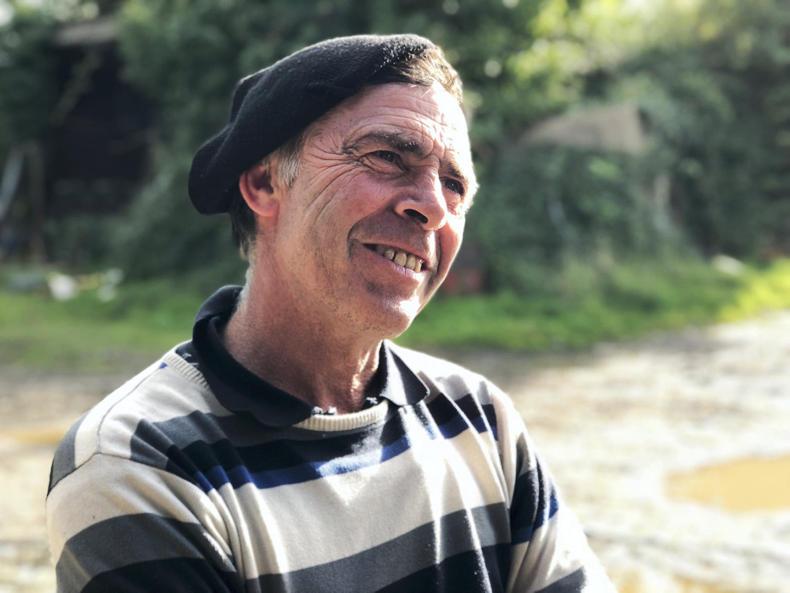
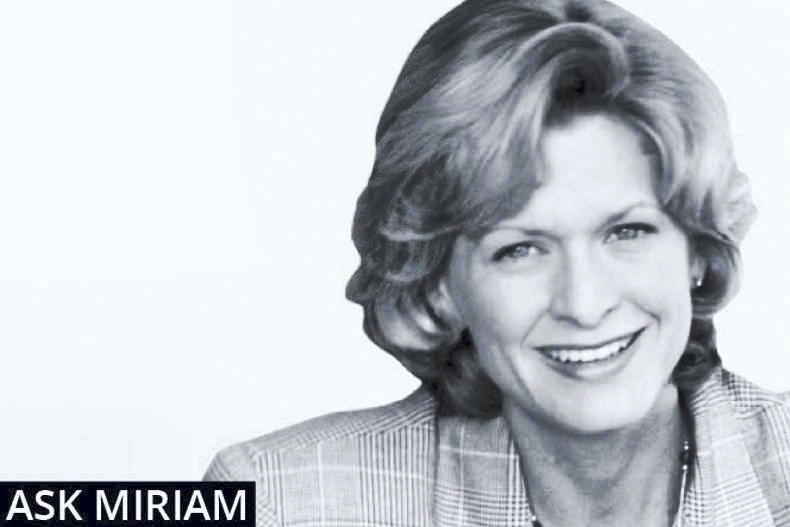



SHARING OPTIONS